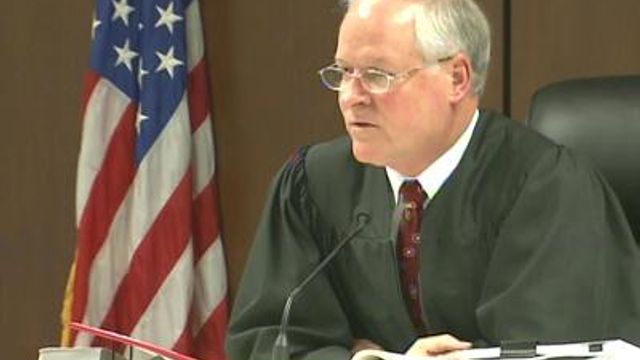The first thing Judge Donald Stephens said when he sat down on the bench to hear the death penalty case Wednesday was that he would pretty much rather be hearing any other case besides this one. He told the packed courtroom that he had sworn off death penalty cases as his New Year's resolution. The reason- after twenty-two years on the bench he realized that there are no winners in these cases, and plenty of strong emotions on both sides. It's not a position I envy. After covering this issue myself for more than seventeen years I am never truly prepared for the passion that envelops the debate over capital punishment and the desire for people on both sides to sign you up.
I remember my first execution like it was yesterday. I stood on a grassy hill next to the maximum security prison in Columbia, South Carolina. A line of reporters dotted the hill each standing in the center of a powerful spotlight meant to illuminate us for television. We were no more than two feet apart because it was the only way to fit every news crew along the wall next to the prison. In the distance I could hear the chants of people supporting the execution.
This phenomenon has long since faded- today protestors silently rally with candlelight vigils at Central Prison. But back in the day it was a party atmosphere. At the time, South Carolina used the electric chair and so the chant went: "Burn baby burn!"
Truthfully, I have met more victims' families in recent years that either oppose the death penalty vocally and ask for mercy for the person who took their loved one's life, or simply say nothing and leave it up to the courts. But those who are in favor of it generally have a pretty persuasive argument- someone has taken the life of someone they loved and they are in excruciating pain. It's not something that's easy to argue with.
People who are against the death penalty are just as vocal- probably even more so today. For the most part their objections are based on religion and morality. Again, I'm not in a position to judge how someone's faith shapes their views on this issue. Not unlike the abortion debate, when someone roots their opinions in their faith it's hard to argue with.
The family members of the accused are also stakeholders in the debate. They didn't commit the crime. In many ways they are victims too. But then they have to watch their loved one die. Again, it's hard to argue with someone who doesn't want their son to be executed.
So in the end, I sympathize with Judge Stephens. He is known as a law-and-order judge, someone who is highly respected by all attorneys for his impartiality, and for his strict adherence to the law. I would not have wanted to be in his seat. He knew his decision was bigger than his personal views on the issue, it was about life and death, and in the end it was about the laws of our state.
Related Topics
Copyright 2024 by Capitol Broadcasting Company. All rights reserved. This material may not be published, broadcast, rewritten or redistributed.






